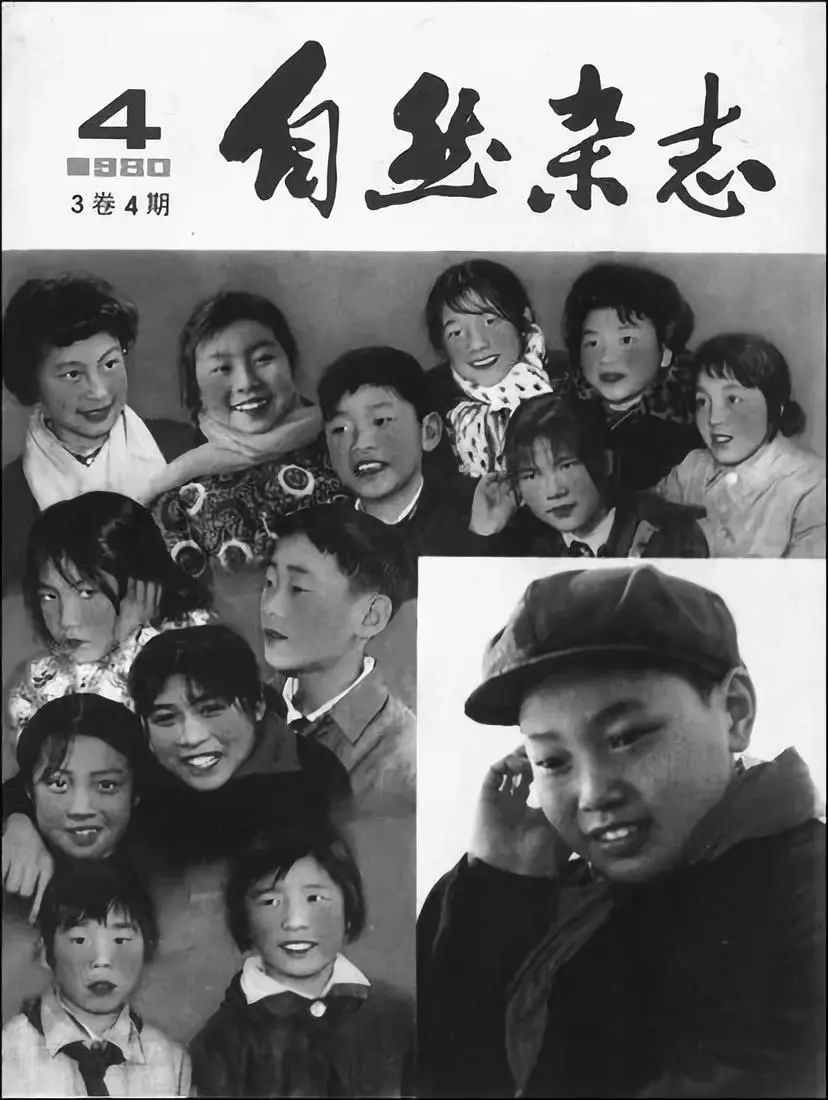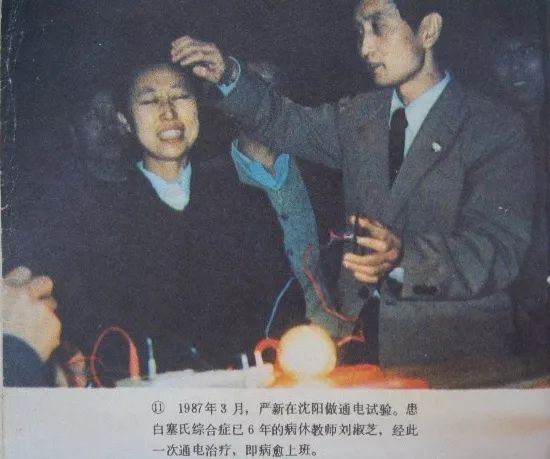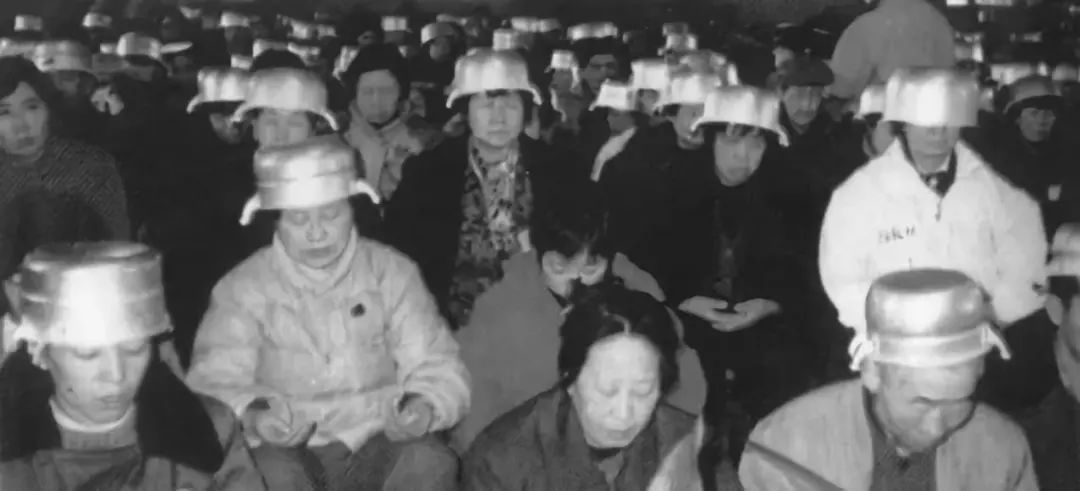Generations of Qi Gong masters have passed away, yet new talents continue to emerge.
Each wave of enthusiasm, each celebration.
Having witnessed the absurdities of history, yet still unable to escape the web of the times.
Author: Dong Guidance
Data support: Yuanchuan Research
Originally published on WeChat public account: Fan Tong Dai Laoban
(ID: worldofboss)
Authorized for reprint by Dingxiangyuan
On March 26, 1989, 25-year-old poet Haizi committed suicide by lying on the tracks in Shanhaiguan. Two months prior, he had written “Facing the Sea, with Spring Blossoms,” and the motive for his suicide remains a mystery.
In his last three days, Haizi left behind six letters, the first five of which pointed to his cause of death being related to Chang Yuan, who lived in the same building.
At that time, Chang Yuan was teaching at the Central Political and Law Management Cadre Academy and was very fond of practicing Qi Gong. His wife, Sun Ge, was discovered to have special abilities at the age of 12, and the couple practiced together, excelling in their skills.
Chang Yuan and his wife had a close relationship with Haizi, often practicing together and introducing him to other masters. Haizi practiced diligently, mastering the basic methods in his first week and soon claimed to have opened the “Small Heavenly Circuit” (Xiao Zhou Tian), allowing him to circulate Qi freely.
However, Haizi’s journey in advancing his skills was not smooth; he believed that Chang Yuan and his wife were secretly plotting against him, using their powers to harm him.
In his letters, he accused them of brutally exposing his “heart-eye” (xin yan) and “heavenly ear” (tian er), driving him to a state of schizophrenia. In his poem “To 1986,” Haizi lamented: “It was as if two fierce monks set fire to the wild chrysanthemums.”
Whether Chang Yuan actually harmed him remains unproven, but Haizi’s obsession with Qi Gong was real. This poet, who sought to escape the constraints of the material world, found himself lost in the frenzied waves of Qi Gong fervor.
In one of his letters, he urged his brother to avenge him, solemnly advising:
” First, you must learn Qi Gong well.“
1. The Spring of ‘Science’
In March 1978, the National Science Conference was held in Beijing, attended by 5,586 representatives, a grand event. Before the conference concluded, the announcer read Guo Moruo’s speech “The Spring of Science,” which proclaimed:
“The most brilliant spring of science in our nation’s history has arrived!”
After years of turmoil, the main contradiction in our scientific community was the intense desire to achieve “rapid breakthroughs in science and technology to surpass Britain and America” and the extreme backwardness of our “scientific research capabilities and theoretical systems.”
A year later, the Sichuan Daily dropped a bombshell in the scientific community, reporting that “a boy in Dazu County could recognize characters with his ears.” This report immediately became a hot topic, with supporters exclaiming: Our ancestors left us a shortcut to science!
The Sichuan Medical College sent an investigation team, which conducted 25 tests on the boy in a week. The boy cheated 19 times using methods like switching paper strips and was caught in the act, while he refused to test six times due to being caught peeking, leading to awkward situations.
The results disappointed supporters, and on June 5, the Sichuan Provincial Committee had to submit a self-criticism report to higher authorities regarding the report from Dazu County.
Unexpectedly, 13 days later, Hong Kong’s Ming Pao published a letter signed by “Li Xue Lian,” titled “Recognizing Characters with Ears is Not Necessarily Absurd,” criticizing the domestic understanding of human science as outdated and overly dogmatic.
This timely appearance of a Hong Kong citizen provided a boost to supporters of special abilities, even subtly changing the attitude of higher authorities. In no time, masters from all corners of the country emerged, accepting the worship of the masses.
In the field of “recognizing characters,” there emerged Beijing girls recognizing characters with their ears, Shanxi boys with their armpits, Anhui boys with their x-ray vision, and others using their noses, toes, and tongues, utilizing almost every available organ.

Children with special abilities, with Tang Yu, the boy who recognized characters with his ears, in the lower right corner.
Image source: 1980 Nature Magazine
After the human organs were insufficient, children in Kunming began to demonstrate telekinesis and healing through thought.
Various newspapers eagerly reported on over 2,000 special ability practitioners, with ages getting younger and abilities growing stronger.
Twenty years after launching food satellites, twenty years later, human satellites were launched, with beautiful mountains and talented people.
Nature Magazine became the platform for public opinion on special abilities during this period, and in 1980, it welcomed a visit from Qian Xuesen. Qian expressed his support for human science and published several speeches and articles in the following years, advocating for research related to special abilities.
Qian held human science in high regard, praising it as the stage of modern science appearing in China, marking the “second Renaissance” in human history, calling on supporters not to heed ridicule and criticism, but to work diligently.
Wang Jialin, former director of the Yunnan Institute of Human Science, actively responded to the call and underwent a bile drainage tube surgery at the hospital. While hanging the tube, he had people record his bile secretion under different conditions such as practicing, sleeping, and resting, ultimately forming a report titled “Qi Gong and Bile Secretion.”
This self-sacrificial act of self-surgery was praised by Qian as: “Comrade Wang Jialin… this spirit is worthy of respect.”
However, there were those who remained clear-headed, such as Ye Shengtao, who published an article in the newspaper strongly opposing it, only to face pressure from all sides; economist Yu Guangyuan wrote a letter to the leaders reflecting the situation, but received no response; the founder of neuroscience in China, Zhang Xiangtong, bluntly stated: this is a farce.
Nevertheless, the authority in the missile field ultimately set the tone for the special abilities debate, supporting the notion of “ten thousand jin per mu” (亩产万斤), and everyone seemed to forget. Thus, hundreds of human science research institutes were established across the country, with reports and papers being published like snowflakes.
The 507 Institute, which Qian Xuesen was responsible for, engaged in aerospace medicine research in the 1960s and 70s. By the early 1980s, when the focus shifted to “selling tea eggs rather than developing missiles,” the 507 Institute faced proposals for cuts due to tight funding from the Ministry of National Defense.
Ultimately, the 507 Institute cleverly seized the opportunity of special abilities, not only retaining its staff but also applying for significant research funding, successfully weathering the downturn. In 1987, the “Chinese Society of Human Science” was established with the approval of the Ministry of National Defense, affiliated with the 507 Institute.
The 507 Institute gained significant fame, renowned both domestically and internationally. In Stephen Chow’s movie “The Gambling Ghost 2: Shanghai Bund”, a “Beijing Institute of Human Special Abilities Application” appeared, based on the 507 Institute.

Beijing Institute of Human Special Abilities Application
Image source: Provided by the author
In the movie, the villain “Da Jun” graduated from this research institute. His four disciples, who appeared alongside him, possessed skills in telekinesis, pyrokinesis, electricity generation, and creating illusions.
This is simply the Chinese version of Hogwarts; where can I sign up?
2. Qi Gong Masters
Qi Gong has been popular since the Wei and Jin dynasties. Although it is cloaked in the mysterious garb of Daoism, for a long time, it has been regarded by the public as a means of strengthening the body and nurturing life, similar to the contemporary popularity of Indian yoga and Korean Zheng Duoyan.
In the early 1980s, several scientists proposed a conclusion after research: Qi Gong is the stepping stone to human science; it represents and is the foundation of TCM theory, with its advanced stages being special abilities, thus forming a trinity scientific system of TCM, Qi Gong, special abilities, and human science.
From then on, Qi Gong gained both public and scientific support, beginning to showcase its prowess across the land.
Yan Xin, who spent his childhood in Ma’anshan and had rich experience in TCM, became a representative of Qi Gong masters. He claimed to have extinguished the Daxing’anling fire in 1987 using Qi Gong, completely disregarding the efforts of over 58,000 military, police, and civilians over 28 days and nights.
While Master Yan was treating illnesses with his powers, he also actively participated in academia. He collaborated with prestigious universities to conduct experiments on altering molecular structures through Qi Gong and published six papers, which were praised by great scientists as “world-first, should be announced to the world in a timely manner.”

Master Yan Xin using electrotherapy to treat patients in 1987.
Image source: Provided by the author
Stage actor Zhang Xiangyu claimed to receive information from the universe and communicate with all things. In 1993, he led over a thousand followers to contact aliens on Miaofeng Mountain in Beijing. The followers sat cross-legged, eyes closed, with an aluminum information pot with two handles on their heads to achieve a connection with the heavens.

Scene of a thousand people practicing with pots on their heads.
Image source: Provided by the author
Zhang Xiangyu made over 400,000 yuan by selling pots and tickets, but compared to another Master Zhang, he was only qualified to carry shoes.
Miner Zhang Baosheng, who gained fame for recognizing characters with his nose, later acquired abilities such as healing, telekinesis, and intercepting missiles, and in 1983, he was transferred to the 507 Institute, enjoying expert-level treatment with bodyguards and special vehicles, hailed as China’s number one Qi Gong master, a secret weapon for winning in future military conflicts.
This status is comparable to Marvel superheroes.
Unlike Marvel heroes who live in comics, Qi Gong masters exist in the real world; similarly, they both have numerous fans, especially the latter, whose followers’ status is frighteningly high.
On August 3, 2018, Zhang Baosheng died of a heart attack at the age of 58. Looking back years later, apart from contributing countless special ability scenes to Hong Kong cinema, Zhang Baosheng left nothing behind.
Besides top-tier figures like Zhang Baosheng, there were over a thousand named Qi Gong masters in the folk. At that time, the number of Qi Gong believers nationwide reached as high as 60 million.
For instance, in Beijing’s Ditan Park, hundreds of people practiced Luohan Gong daily, lying, standing, or crouching, with the more bizarre the posture, the more respect they received.
Shaw said,Where knowledge does not exist, ignorance claims to be science.
Writer Ke Yunlu wrote over a million words in a trilogy on Qi Gong, claiming, “I alone can represent the entire Qi Gong community and answer questions from the world.” In 1998, he published a book titled “Discovering the Huangdi Neijing,” introducing “Contemporary Hua Tuo” Hu Wanlin.
Unexpectedly, a year later, Hu the Divine Doctor caused the deaths of several patients and was sentenced to prison for illegal medical practice.
During Hu Wanlin’s investigation, Ke Yunlu wrote a book titled “Reorganizing the World of Life” to show support. This persistent love ultimately transformed into the hot sale of hundreds of thousands of books priced at 36.8 yuan each.

Lin Housheng, deputy director of the Shanghai University of Traditional Chinese Medicine, sending “external Qi” for anesthesia during surgery in 1987.
Image source: Provided by the author
This nationwide frenzy of deification abruptly ended in 1999, as it became a hidden danger to social stability and was banned. Those masters with foresight did not seem to predict this day, scattering and falling in panic.
The Qi Gong master Zhou Derong, who once extracted teeth for Ge You, even changed the sign of “Qi Gong Tooth Extraction” to “Painless Tooth Extraction at Acupoints.”
Dong Guidance, one of my relatives, once recalled that period:
The Qi Gong wave was a superstitious movement initiated by a few scientists, exploited by pseudo-scientific groups, bringing serious disasters to the Party, the country, and the people of all ethnicities.
3. Qi Gong After the Millennium
In 2000, most Qi Gong research institutes in universities had closed, but the listed company China High-Tech, initiated by 36 top universities, welcomed a charlatan chairman: 26-year-old Qi Gong master Zhang Hai.
After taking charge of China High-Tech, Zhang Hai once said to people: “The company directors are all university presidents and professors; don’t they have to listen to me?”
This statement was later simplified to “Tsinghua and Peking University are not as good as being bold.”
Zhang Hai rose to fame in the 1990s, with the unique skill of changing the size of leaves he held in his mouth, akin to the Iron Fan Princess who held a banana fan.
Zhang claimed to be a disciple of a living Buddha from Tibetan Buddhism and received official permission to establish the Institute of Tibetan Yoga Culture at the Academy of Social Sciences, serving as the director, earning nearly ten million yuan in his first pot of gold through classes.
After becoming wealthy, Zhang Hai moved to Guangzhou, ventured into the capital market, and created the shocking Kaidi system, frequently acquiring shares of major companies. The most famous was his takeover of Jianlibao in 2002, a national enterprise in the beverage sector that was expected to rival Coca-Cola.
The “father of Jianlibao” Li Jingwei was ousted by the Qi Gong master. Suffering from a cerebral hemorrhage, he was sentenced to prison for embezzlement nine years later by a court temporarily set up at the Zhujiang Hospital in Guangzhou.
Master Zhang Hai did not provide the company with an indestructible body; Jianlibao’s performance declined year by year. In March 2005, he was arrested and imprisoned for falsifying accounts and embezzling assets.
While in prison, Zhang Hai gradually regained his powers, able to report criminals and even invent patents. Six years later, he was released early for significant contributions and subsequently fled abroad, preserving his indestructible body. Truly a master.
Zhang Hai’s story encouraged industry peers to regroup and strive in politics, business, and celebrity circles, with the most promising being Daoist Li Yi and Master Wang Lin.
Li Jun rose to fame in 1990 for his performance of conducting electricity through the human body, winning the title of one of the top ten masters in the “Bashu Unique Skills Competition” held by Chongqing TV. In January 1997, he performed the feat of holding his breath underwater for 2 hours and 22 minutes on Shanghai TV’s “The First in the World.”
The notarized personnel on-site announced that this score of 3 twos was real and valid.
However, conducting electricity and holding breath underwater were too dangerous and impractical, and despite Li Jun claiming to be highly skilled in Qi Gong, he had few followers. Fortunately, in 2006, Li Jun obtained the title of Daoist and changed his name to Li Yi. Thereafter, he took on the responsibility of promoting Daoist health preservation, becoming popular in business and politics, with 30,000 disciples.
However, the good times did not last long; in July 2010, the debunker Fang Zhouzi exposed Li Yi, quickly becoming a focal point of public opinion, and Li Yi’s past was peeled back like an onion. Under the one-sided questioning and accusations from public opinion, the internet celebrity Daoist fell from grace and entered a long period of retreat.
Watanabe Junichi once said when describing relationships between men and women: Maintaining a certain sense of mystery is essential for maintaining charm.
In this regard, Daoist Li Yi did not do well; he frequently appeared on major TV programs and even recorded health preservation DVDs that could be purchased for a few hundred yuan, truly committing the taboo of losing mystery. In contrast, Master Wang Lin understood this trick well.
Master Wang Lin was best known for his empty bowl snake-catching and empty cup wine-fetching. He claimed to use thought to move objects, but no one ever saw him perform without any props. After being imprisoned, Wang Lin admitted that this was not Qi Gong but rather a form of trickery passed down for a thousand years.
Master Wang lived a secluded life, and ordinary people had no chance to see his performances; those who visited were either rich or powerful. In Wang Lin’s five-story villa, adorned with long golden crystal lights, two floors were dedicated to displaying his photos with celebrities and officials.
It is said that Liu Zhijun once visited Wang Lin’s residence and was promised a stone that would “ensure you never fall.” The former vice governor of Jiangxi, Hu Changqing, who was sentenced to death for bribery, even had Wang Lin inscribe the words “Qi贯长虹, 功大无边” (Qi贯长虹, 功大无边) for him.
In July 2013, the New Beijing News unveiled Wang Lin’s mysterious facade, and major media outlets began to criticize him. Celebrities hurried to distance themselves, and Master Wang Lin quickly responded: “I do not have any magical powers; the worst thing for a person is to be superstitious.”
In “The Power of Fear,” it is stated:Human beings will inevitably encounter things that are frightening or beyond their control and hope for a supernatural force to help them out of their predicament. This psychology is an important factor in the emergence of religion.
Finding a psychological refuge for oneself is not blameworthy, but there are always some who maliciously erase the boundaries between religion and superstition. Those who truly believe may be excused, but some, after seeing through it, manipulate it for profit. Such occurrences have been common throughout history.
The famous crosstalk master Liu Baorui has a work called “Rising Three Levels,” which tells the story of a good-for-nothing rich second generation, Zhang Haogu, who went to Beijing to take the imperial examination. Without writing a word, he became the second place and rose to the Hanlin Academy.
Not long after Zhang Haogu arrived in Beijing, he was discovered to be a fool, but the officials and scholars, whether fearing retaliation, seeking to curry favor, or going with the flow, ultimately did not expose him. Even after the new emperor ascended the throne, he was rewarded and promoted three levels.
At the end, Mr. Liu Baorui sharply commented:
A bunch of idiots!
4. Historical Absurdities, the Web of the Times
The ritual of tossing coins to make wishes, popularized in the movie “Roman Holiday,” has spread worldwide.This ritual has been continuously improved upon in our country.
For example, at Pudong Airport, an elderly lady tossed a handful of coins worth a total of 1.7 yuan into the airplane engine while boarding.
The old lady’s intention was to pray for safety, but if it weren’t for the maintenance personnel spending five hours retrieving all the coins, this plane flying from Shanghai to Guangzhou might have headed west instead.
Dong Guidance’s aunt, who claims to be the best believer within a ten-mile radius, I once asked her why the old lady threw coins into the airplane engine. My aunt gave me a blank stare: “Throwing paper money is too expensive!”
My aunt’s WeChat Moments are filled with various offerings:
In April, a certain Luohan was born, forwarding and liking brings continuous good luck;
In August, reading the Dao De Jing ten times ensures family safety;
In October, donating 500 yuan to Master Cihang prays for the prosperity of descendants.
My cousin, a highly educated millennial, holds a strong critical attitude towards her mother’s actions, believing this is pure superstition, the dregs of backward culture, and the residual poison of a thousand years of feudalism.
I flipped through her Moments and found that she not only liked to forward koi posts but was also keen on sharing Yang Chaoyue.
Keynes believed that demand is the root of all economic activity. If someone likes koi, someone will create koi.
The most popular is a girl who has shared her good fortune several times over the past twenty years, branding herself as the representative of “lying down to win,” a sexy fortune doll that can cast spells online, attracting millions to share in their Moments.
To be honest, if we talk about lying down to win, the most powerful is to be born into a royal family, suddenly becoming an emperor and possessing the world, like Puyi, who sat on the dragon throne before he was three. This man, who resembles a koi fish, lost his ability to reproduce years later, and the Qing Dynasty, which was passed down for generations, also perished.
From Qi Gong masters to sexy fortune dolls, from long-distance Qi emission to online spell casting, the objects and methods have changed, yet the collective madness remains unchanged. This is not just a phenomenon in the field of Qi Gong.
Bakhtin discovered through his research on “collective carnival” that this is a cultural strategy to express dissatisfaction and resistance to social pressure, achieving the purpose of temporary liberation while leaving reality unscathed.
Generations pass away, generations grow, each wave of enthusiasm, each celebration. Having witnessed the absurdities of history, yet still unable to escape the web of the times.

Editor: lightningwing
Cover image source: Zhanku Hai Luo
References:
1.Human Confusion, Shen Zhenyu
2. Biography of Haizi, Liao Yuan
3. On Human Science, Qian Xuesen
4. Qi Gong and Deception, Liu Zheng, Sima Nan
5. “Koi Prayers” and “Everyday Superstition,” Liang Kun
6. Zhang Hai, the true culprit behind Jianlibao’s downfall? Today’s protagonist, Sohu
7. The Secret “Master” Wang Lin’s Money Kingdom, Zhang Han, New Beijing News
8. Zhou Derong: The Qi Gong Master who extracted teeth for Ge You, China News Weekly, Fu Yao
9. Ke Yunlu’s old words: No one has done more than I have, Hu Yanping, Beijing Youth Daily, New Language Silk
10. Daoist Li Yi’s underwater breath-holding for 2 hours sparked intense online skepticism, Southern Metropolis Daily, Zhang Shuzhou
11. A study on the role of media in the “Martial Arts Qi Gong Fever” in China during the 1980s and 1990s, Zhang Zhuo, Wang Mingqian

